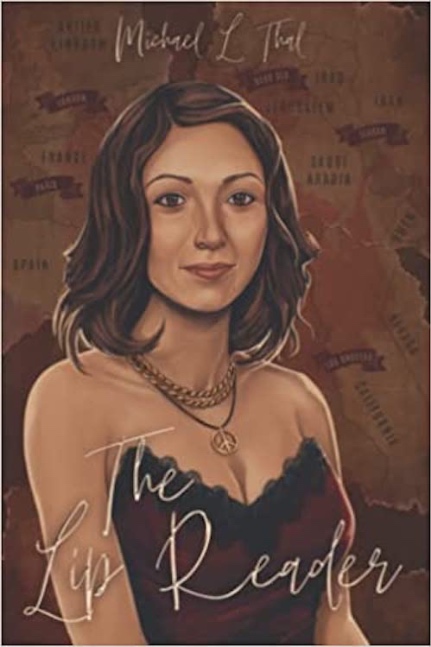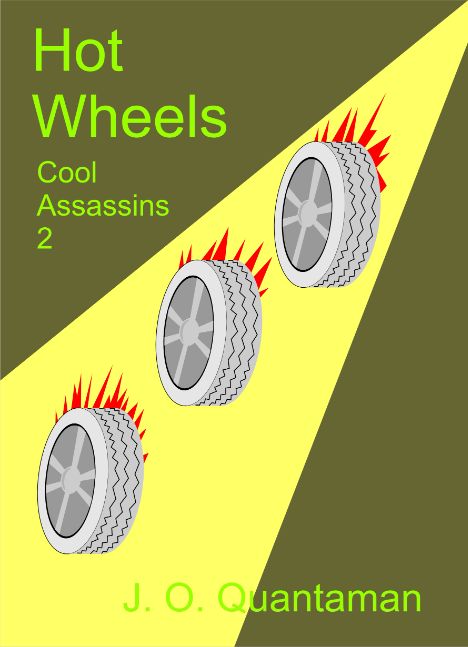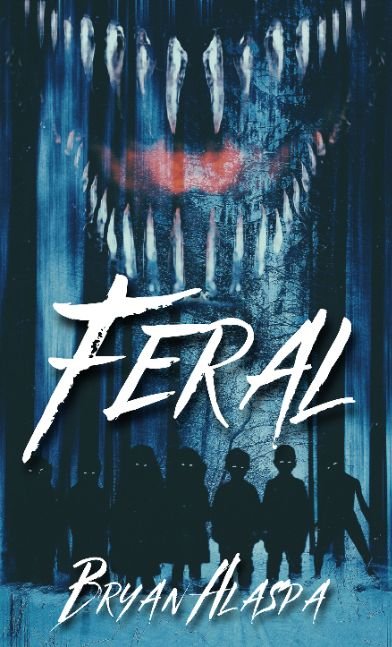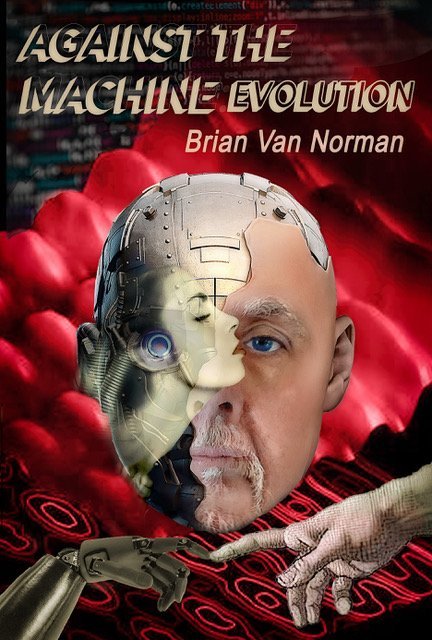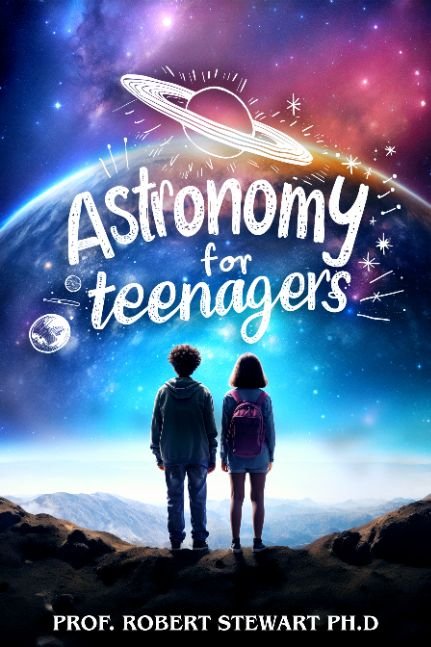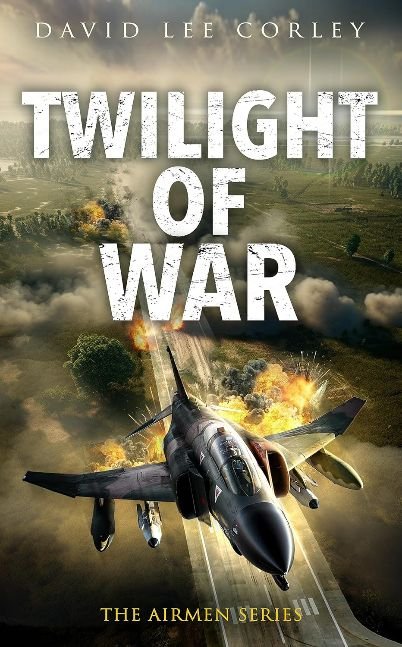- Home
- Book Trailer
- Jeremy Clift - Sci-Fi Author with Vision
Jeremy Clift - Sci-Fi Author with Vision
 https://www.jeremycliftbooks.com
https://www.jeremycliftbooks.com
Which character do you enjoy writing the most as a writer and why? If choosing a favorite character is like choosing a favorite child, which character do you find requires the most attention and detail from you as a writer?
It really is like choosing a favorite child—but if I had to name the character I most enjoy writing, it would still be Teagan. Her strength, vulnerability, and sheer determination make her the emotional engine of the series. She’s not just surviving—she’s constantly pushing against systems that want to define her, and that makes her endlessly compelling to write.
But in terms of who requires the most attention and detail, I’d say Clara or Noel. Clara, because she’s carrying so much silence—there’s a weight to her past and a quiet resilience in how she moves through the world. Writing her means paying attention to what isn’t said just as much as what is. And Noel, with his scientific mind and his deep personal regrets, required a kind of emotional precision. He’s both visionary and deeply human, and balancing those aspects took time.
They’re the quieter voices—but in many ways, the most intricate.
Can you explain your writing process? Do you prefer to create an outline and plan beforehand, or do you prefer to write more spontaneously and organically?
I start with a rough structure—major arcs, key turning points, a sense of where the emotional stakes are heading—but I leave a lot of space for the story to evolve. I think of it like plotting a star map: I know the major constellations, but the real navigation happens in the gaps between.
Often, I’ll sketch scenes or dialogue fragments before I know exactly where they belong. As I write, the characters start to push back or surprise me, and that’s when things get interesting. I want the narrative to feel alive, not engineered. So I plan just enough to give the story shape, then trust the process to fill in the rest—usually with the help of long walks and a lot of revision. Suddenly, I'll think of ways of connecting two halves of a story. It seems like it was part of the original idea, but in fact inserted later. I like things to come full circle.
What are some books or authors that you would recommend to our readers?
I’d start with Andy Weir. The Martian was hugely influential for me—not just because it’s a brilliant survival story grounded in real science, but because it began as a self-published book. That showed me what was possible outside the traditional publishing path, and that a smart, tightly crafted story could find its audience through sheer strength of concept and voice.
From there, I’d recommend Ursula K. Le Guin—The Left Hand of Darkness and The Dispossessed are essential reading if you’re interested in sci-fi that challenges assumptions about identity, society, and morality. Octavia Butler’s Parable of the Sower is another favorite: a deeply human, prophetic exploration of collapse and transformation.
Kim Stanley Robinson’s The Ministry for the Future is ambitious and sobering in its approach to climate and economics, while Ray Nayler’s The Mountain in the Sea is a lyrical, haunting meditation on AI, consciousness, and what it means to communicate across species.
And of course, Cixin Liu’s Three-Body Problem is perfect for readers who enjoy grand, philosophical sci-fi that spans civilizations and challenges the human perspective on power and survival. These are books that don’t just entertain—they ask big, urgent questions. That’s what I love most about the genre.
Tell us what you enjoy most about writing [genre].
What I love most about writing science fiction is that it lets me explore the future without leaving behind the deeply human questions we face today. Sci-fi gives you the freedom to ask, What if we changed everything? but it also forces you to confront what never changes: our need for connection, our struggle with power, our fear of the unknown.
It’s a genre where imagination and ethics collide. You can invent alien worlds, artificial minds, or genetic revolutions, but the real heart of the story is still about people: their hopes, their losses, their resistance. That blend of scale and intimacy is what keeps me coming back. Sci-fi is where we rehearse the future—and where we dare to write something better.
Have you been able to incorporate your previous experience in [jobs/education] in your writing?
Definitely. My background in journalism has shaped almost everything about how I write fiction—from the research process to the themes I explore. Covering conflict, climate, and economic inequality gave me a front-row seat to the systems that shape our lives, for better or worse. That experience seeps into the world-building in Sci-Fi Galaxy—whether it’s a corporate-controlled moon base or the ethics of genetic engineering, I try to ground the speculation in reality.
Journalism also taught me to listen—to people on the margins, to complex perspectives, to uncomfortable truths. That’s been invaluable when writing characters who are caught in systems they didn’t choose but still have to navigate. In the end, fiction just lets me ask the same questions on a bigger canvas: What do we do when power fails us? And how do we keep hold of our humanity in the process?
Describe the [book/series] in 10 words or less for people who are just learning about it.
Jeremy Clift's Sci-Fi Galaxy series: In space, love survives—despite machines, myths, and manipulation.
Would you like readers to have any specific takeaway from your book?
I’d love for readers to come away with a sense that the future isn’t fixed—it’s something we’re shaping, moment by moment, with every choice we make. There’s a lot in the series about technology, power, and survival, but underneath it all is a deeper message: that love, empathy, and moral courage still matter, even in the cold vacuum of space.
If there’s a takeaway, it’s this: no matter how advanced the systems or how far we drift from Earth, the fight for dignity, freedom, and humanity will always be worth it. And it won’t be won by the most powerful, it’ll be won by those who refuse to give up on each other.
Do you have any unusual writing habits?
I’m not sure how unusual it is, but I do find that walking—especially outdoors—unlocks ideas in a way sitting at a desk never does. I’ll often take a scene or a problem with me on a walk and come back with the solution. And for some reason, Mozart seems to flip the right mental switches. There’s something about the structure and flow of his music that helps me untangle narrative rhythms. So if you picture me working, it’s probably not at a keyboard—it’s pacing, listening to classical music, and scribbling half-legible notes on the back of a scrap of paper.
Share some advice for aspiring authors. What advice would you give to your younger self?1. What is your favorite line from your book?
Do lots of research and thinking first. But start writing before you feel ready. You’ll never have perfect clarity or enough time—but the act of writing itself creates momentum. Don’t be afraid to explore big questions or messy emotions. Let your curiosity lead you, and don’t wait for permission to imagine boldly.
Also: finish things. Even if it’s not perfect, completing a story teaches you more than any number of great ideas ever will. And revise with joy—because the second draft is where the real writing happens.
To my younger self? I’d say: Don’t worry so much about getting it “right.” Worry about getting it true. Make it worth reading.
Favorite Line from the Book:
“Perhaps the spaghetti was a mistake.”
It’s the opening line of Born in Space, and I still love it for how disarming it is. In a story filled with high stakes, genetic secrets, and deep space tension, starting with something so mundane, and oddly human, grounds the reader immediately. It hints at humor, regret, and vulnerability, all in one sentence. And it reminds us that even in science fiction, the human experience still includes questionable dinner choices.
To date, what is your favorite (or most difficult) chapter you have ever written?
One of my favorite—and most difficult—chapters to write was the epilogue of Space Vault: The Seed Eclipse. It’s a quiet, emotionally charged reckoning between a human and a machine, and it asked a lot of me as a writer. I had to find a tone that balanced tenderness and ambiguity, while still delivering a moment that would resonate with the larger questions of the series: What do we owe to our creations? Can machines deserve mercy? Or justice?
It’s a scene that doesn’t end with certainty—but it lingers. And I think that’s why I love it. It felt like writing the soul of the book.
Was there anything you had to research for the book?
Definitely. Research is a big part of my process, and I approach it much like I did in journalism—chasing real-world details that can ground even the most speculative ideas. For Born in Space and Space Vault, I dug into everything from orbital mechanics and space station design to genetic engineering, AI governance, lunar agriculture, and even solar flare patterns.
One of the most fascinating rabbit holes was researching lunar seed vaults and how we might store Earth’s genetic legacy off-planet. I also attended the Space Symposium in Colorado Springs, where I had conversations with engineers and scientists working on the kinds of projects my fiction explores. That real-world grounding helps me create futures that feel not just plausible—but urgent.
What are you reading right now?
Right now I’m reading The Mountain in the Sea by Ray Nayler. It’s a beautifully written, thought-provoking exploration of AI, consciousness, and nonhuman intelligence—right up my alley thematically. I’m also revisiting The Left Hand of Darkness by Ursula K. Le Guin. Her work always reminds me that science fiction isn’t just about the future—it’s about empathy, language, and the boundaries we choose to cross. I like to keep one eye on the new and one on the timeless.
What can we anticipate from you moving forward?
Right now, I’m deep into Book Three of the Sci-Fi Galaxy series. It builds on everything that came before—but the stakes are rising. We’re going deeper into questions of consciousness, resource control, and what it really means to evolve as a species. Teagan, Diana, and the surviving “Heavenly Babies” are back, but they’re not just trying to survive anymore—they’re trying to reshape the future.
After that, I’m planning a new installment that shifts the focus back toward LEO, and the construction of a massive solar shield in space, designed to protect the planet from devastating flares. But of course, nothing is ever that simple. The shield offers hope, but also control—and possibly, a new kind of weapon. It’s a story about power, trust, and the fine line between salvation and threat. I’m really excited about where it’s heading.
Did you always want to be an author? If not, what did you want to be when you grew up?
I didn’t set out to be an author, at least not at first. I wanted to be a journalist—and I was. For years, I reported from war zones, disaster areas, and economic summits, chasing real-world stories with immediacy. But along the way, I realized I was also drawn to the what ifs—the questions that didn’t have immediate answers, the futures we were quietly building without noticing.
Fiction gave me a new lens. It allowed me to ask not just what’s happening, but what could happen—and who might be left behind or transformed along the way. So while I didn’t always know I’d be writing science fiction, looking back, it feels like the most natural evolution of how I’ve always tried to make sense of the world.
How long did it take you to write this book?
Born in Space took more than five years to write, largely because it was the foundation for the entire Sci-Fi Galaxy series. I was doing extensive research—on orbital science, genetic engineering, AI, and future governance—while also trying to build a believable and emotionally grounded world. It wasn’t just about one book; it was about constructing a future that could hold many stories.
Space Vault: The Seed Eclipse came together more quickly—about a year and a half—because so much of the groundwork had already been laid. But with both books, I took the time to make sure the science supported the speculation and that the characters carried the emotional weight of the story. It’s not just about imagining the future, it’s about making it feel real.
Are any of the characters in your book based on people in your real life? If so, can you tell us more about that process and how it influenced your writing?
None of the characters are direct portraits of people I know—but there are definitely traces. Emotions, gestures, conflicts—they all come from life, even if the setting is light-years away. Teagan, for example, carries some of the resilience I’ve seen in women I admire, especially those who’ve had to fight to be heard or protect the people they love. And Hunter’s stubborn sense of justice might owe something to a few close friends who’ve never backed down from a cause, even when it cost them.
That said, I don’t set out to “cast” anyone I know into the story. It’s more that certain personalities or emotional truths work their way in naturally. The moment a character starts to feel real is when they stop resembling someone I know—and start acting on their own terms. That’s when I know they’re ready for the page.


